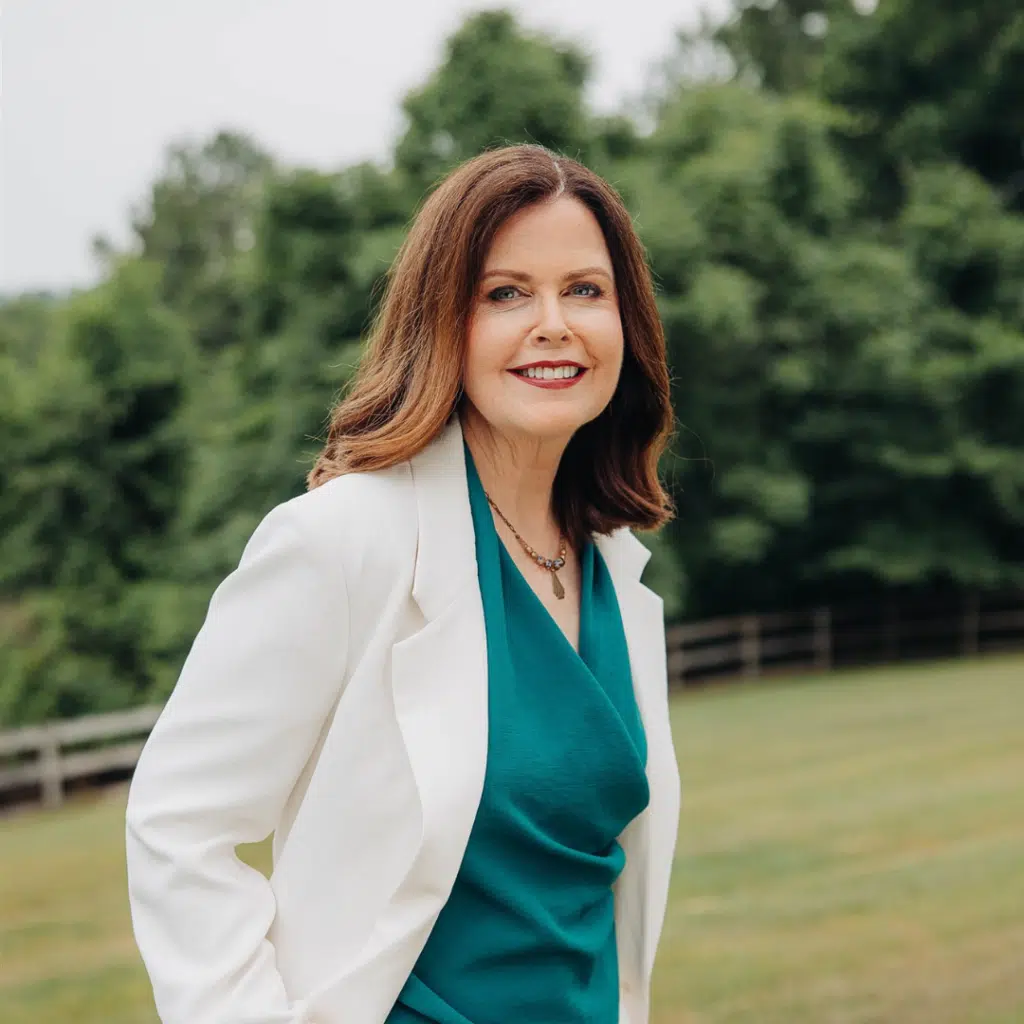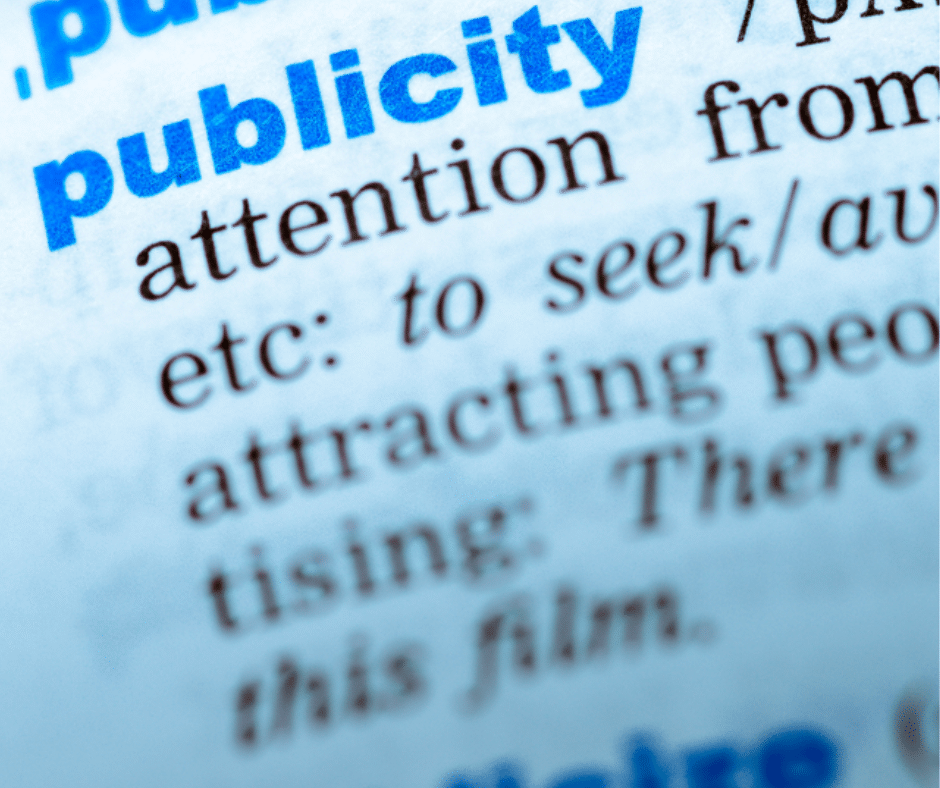By Mary O'Donohue, Media Coach for Women Nonfiction Authors

Why are so many authors struggling with getting the publicity they deserve?
I recently spoke to a nonfiction author who had a compelling topic, but she was very frustrated that she wasn’t getting any book publicity. Once we chatted and I had looked her up online, I quickly found the 5 reasons she wasn’t getting booked.
And I wasn’t surprised, because I see these same media marketing mistakes quite often. The sad thing is, they’re costing authors valuable national publicity.
I don’t want that to happen to you, so I’m sharing these common marketing mistakes – and how you can avoid them. Knowing these strategies will boost your chances of getting valuable publicity and doing media interviews that move the needle on book sales.
Mistake #1: Your bio reads like a resume.
Challenge: Surprised that your bio is costing you book publicity? It’s true! A resume-style bio is effective for HR folks, but it doesn’t speak to producers, columnists, and journalists who aren’t looking to hire you! So, listing out the 7 book awards you’ve won is impressive, but “award-winning author” says it better and faster. Media folks want an expert who knows how to convey their expertise succinctly and strategically.
Plus, a TV interview for example, often only runs about 5 minutes long, so if the host is stating your bio and it’s filled with lots of details about your work history, accomplishments, and awards, that will simply take up too much time. Ideally, for a short TV or radio interview, your Media Bio should be no more than 15 seconds when read aloud. If it’s longer than that, the person interviewing you usually won’t read the entire thing out loud. Instead, it will get edited, which is not ideal because it makes more work for them (not good) and they’re likely to take out key details that you’d rather keep in (not strategic.)
Solution: When your bio is media-savvy it becomes your brand ambassador, attracting the media rather than overwhelming them. So, your Media Bio should include the key elements like your name, title of your book, your unique expertise, and who exactly your reader is. It should clearly convey to the media and their audience that you’re the right person to be interviewed on this specific topic.
Action Step: Use this fictional example as inspiration to write your own Media Bio.
Kayla Suchandsuch is the author of the new book, Traveling With Toddlers: From Diapers to Denmark. Her year long experience globetrotting with her husband and 3-year-old twin daughters has transformed her into the go-to expert for adventurers who don’t want to give up traveling after becoming parents.
Mistake #2: You’re targeting an audience in media that is too broad.
Challenge: When you try to appeal to an audience that’s as wide as possible, you water down your appeal to the media. Think about it, when was the last time you listened to a podcast episode or radio program that appealed to everyone? It’s just not that common these days. That’s because we as individuals are interested in specific niches like book marketing podcasts, or radio shows about raising teenagers, or magazines specifically about pickleball (which totally exists, by the way.) You search out content based on your specific needs and interests, and your audience does the same thing.
Solution: Think about the specific audience who benefits from your book. If you want to get more readers and you focus on media outlets with as broad an audience as possible (or a completely different audience because you want to get your message out to the masses) you’re just going to confuse and alienate the people who need your wisdom, insights, and guidance.
But when you confidently target your book publicity to your true audience, it’s strategic and much more likely to move the needle on book sales. So, it’s worth your own time and effort, plus it benefits both the media outlet and their audience. That’s a win-win-win!
Action Step: After reading this entire article, take 5 minutes to do an internet search on your subject matter using this formula: your key words + “article” or your key words + “TV interviews,” etc… and you’ll quickly uncover the media outlets that are already serving your target audience. Make a list of these magazines, columnists, podcasts, etc… because they’re already interested in your subject matter.
Mistake #3: Your messaging lacks clarity.
Challenge: When I ask an author to tell me what her message is and she starts to explain, I know she’ll have a hard time getting book publicity. Why? Well, do you remember the old marketing adage, “A confused mind never buys?” My version is, “A confused producer never books.” If a media person doesn’t understand what you do or whom you serve, how can they know if you’d be a good fit for their audience?
Solution: These days our attention is spread really thin with so many messages coming at us in social media, ads, and about a gazillion websites. So, it’s more essential than ever to have a clear and concise core message that conveys your value to the media and potential readers. They need to know exactly:
- What you do
- Whom you do it for
- The problem you solve
- Your specific solution
When you do this effectively, you become memorable and much more bookable. For example, years ago I met a woman at a networking event whose message was so clear I still remember it. She said her company sold reversable infant clothing – pink on one side, blue on the other – for parents who didn’t want to know the gender of their child in advance. I wasn’t a media coach back then, but I told her that her message was “high concept” which meant a media person could immediately picture her product which helped make it extremely bookable. Producers love clarity. And that clarity helped her products to
be featured on The Today Show 3 weeks later. Clarity is a powerful asset!
Action Step: Use this example of a clear and concise core message as a jumping off point for writing yours. Let’s say an author is an expert on solving sleep issues in toddlers. Her core message could be:
I provide effective bedtime routines for toddlers so they – and their sleepy parents – can get consistent sleep every night.
Mistake #4: You’re pitching from a point of need.
Challenge: When I worked for The Oprah Winfrey Show, I often received pitches from authors and experts. I was a post producer, so not only were those pitches sent to the wrong person because I worked on shows that were already taped, but the emails almost always started with a variation of these 7 words: “I was hoping you could help me.”
I call that “The 7 Word Pitch That Costs You Publicity” because when I received those emails, I always deleted them after reading just those 7 words. Why? Because media folks are not in the business of helping random strangers get publicity. Sorry. I know that was harsh. But as someone who has worked in high profile television for more than 30 years, I want you to know the truth so it will help you avoid the pitfalls that ruin your chances of getting coveted national media interviews. (Plus, to be fair, we often work 16- hour days and we eat lunch at our desks, if we’re lucky enough to have time. Or desks. So, random strangers asking for help are not our priority.)
The truth is, people who work in media like producers, columnists, and journalists are in the business of serving a specific audience. When you help us do that, you make yourself more bookable. But when you ask for help, you immediately convey that you think you have nothing to offer that media outlet. So, your pitch gets deleted, and you never hear back.
Solution: The truth is nonfiction authors like you are highly bookable media guests who can – and do – get publicity because of the value you bring to the audience of national media outlets. Producers are busy, so they’re looking for experts like you who can make their jobs easier. Experts who pitch with confidence and relevant content have a massive advantage when getting booked!
So, embrace your specific expertise. Own it. Know that you have something unique and important to bring to media audiences. Pitch from a position of service rather than promoting your book. The nonfiction authors I work with get book sales because they bring value to the listeners, viewers, and readers of a particular media outlet.
Action Step: Your specific topics are hidden in plain sight in your own content! Look through your manuscript or published book for 5 potential interview topics that would be of service to your audience in the media they consume. Start with chapter names if you have them. Write them down. That’s your starting point for pitching with purpose!
Mistake #5: You want national publicity, but you don’t have proof of “media viability.”
Challenge: You have your eye on a Good Morning America appearance. You know you can bring value to their audience of millions, and your topic has national relevance, but you’ve been pitching for months and you’re just hearing crickets.
I know one big reason why. Let’s take a peek behind-the-scenes of a national morning show. I used to work on The Today Show in Washington D.C. and just about every day we had live guests appearing on the show from our studios. So, I know first-hand that a national producer will be hesitant to book you if there is no proof that you’ve done local television interviews, or in a pinch, some kind of on-camera appearance. (FYI, even if you have experience giving prepared speeches, that’s not necessarily proof to a producer that you can do live TV.)
A TV newsroom is a hierarchy. A producer who books an inexperienced guest who freezes on live TV is a producer who may be looking for a new job. That’s how consequential your interview may be for their career. If you demonstrate that you can convey your message with confidence and can handle unexpected questions with ease in local TV interviews, bringing that level of skill to a national interview may just help the producer who booked you get a promotion. I’ve spent decades in control rooms and have seen careers change after a single interview.
So, when you pitch a national producer but don’t have the experience to back it up, your chances of being booked go down. Do producers take risks when the guest is THE expert on the topic, and they need to confirm the booking ASAP? Yes. Do they get burned for that decision if the guest doesn’t deliver? Absolutely.
Solution: If your aspirations are national, start local. Get experience. Use the tips in this article to get clarity on who you are, your core message, and to get ideas for what to pitch.
Action Step: If you want to be on a national talk show, start watching local or regional talk shows in your area. Chances are they’re recorded and edited so that producer will be less concerned if you haven’t done live TV appearances because a post producer like me will work with editors to refine and streamline your interview. If your goal is to get on a national morning show, those shows are in the news divisions of their networks, so focus on watching your local news.
So often, nonfiction authors are only focused on getting publicity. But the preparation you do in advance of your media appearances will make all the difference in how effective and successful your media marketing will be. Taking the time to create a media marketing strategy with intention will set you up for publicity that helps you sell books, grow your audience, and make the kind of impact only you can make.
What most surprised you, or what do you still want to know? Let us know your thoughts below!
More About Mary O'Donohue
Mary O’Donohue is a media coach for women nonfiction authors, #1 bestselling parenting author, and former post producer for The Oprah Winfrey Show. She has worked in high profile TV for decades, including years on The Today Show and NBC Nightly News. Mary’s mission is to teach women nonfiction authors how to get national publicity and confidently do media interviews that sell books, grow their impact, and change the world. Her unique coaching framework, The Media I.M.P.A.C.T. Method™ has consistently led to author success in national Media with her clients
reaching audiences of more than a billion. So far.
She can be reached through her website maryodonohue.com or by email at mary@maryodonohue.com


Create a Professional and Profitable Audiobook!
The Insiders Guide to Audiobook Production gives you the inside track to create a high-quality and effective audiobook and reach a much larger new audience.
Thank you!
Please check your inbox for your email.
If you don't see anything in a few minutes, please check your spam folder.


Leave a Reply